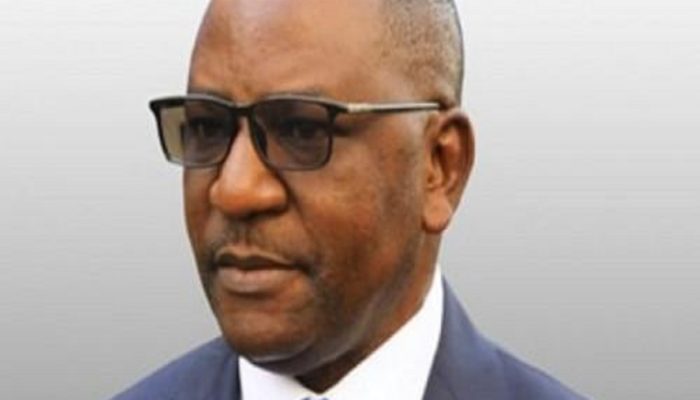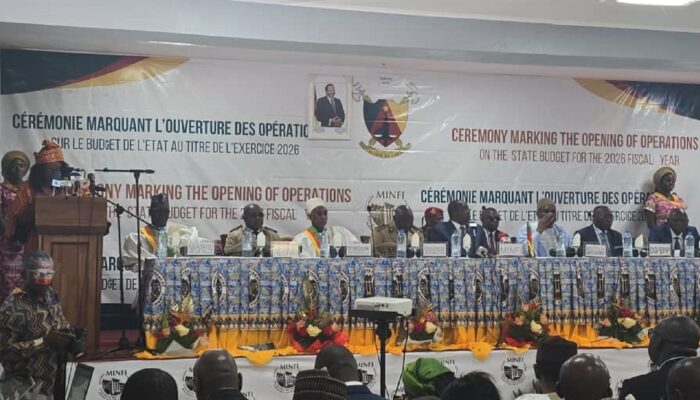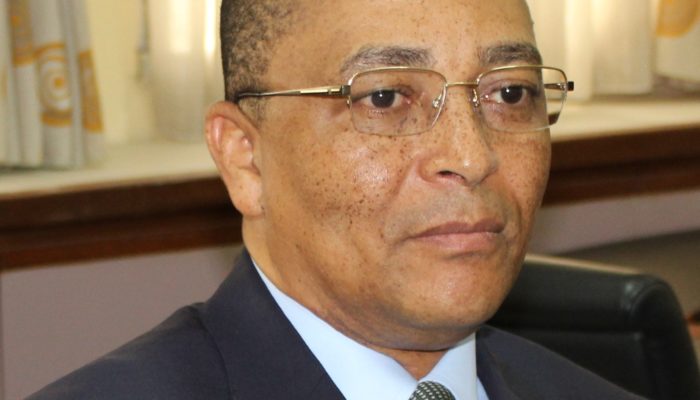The second half of the fiscal year is likely to be very difficult for public administrations in Cameroon. At least, the ordinance of June 3, 2020 modifying and supplementing certain provisions of the law of December 24, 2019 on the finance law of the Republic of Cameroon for the year 2020 was merciless for all ministerial departments. Main information to retain from this important act of the Head of State is the decrease in the state budget for the 2020 financial year which goes from 4,951.7 billion to 4,409 billion FCFA, a decrease of 542.7 billion FCFA corresponding to a rate of change of 11%. Apart from the National Assembly, Senate and Elections Cameroon, all other structures witnessed a significant drop in thier budgets.
If the National Assembly (20.682 billion FCFA), the Senate (15.162 billion) and Elections Cameroon (10.683 billion) have escaped beautiful, for all the rest, it is the diet. Thus, the Ministry of Public Works has cut CFAF 80 billion, the biggest cut of this budget collective. It is followed by the Ministry of Housing and Urban Development (-35.66 billion), the Ministry of Health (-27.42 billion), the Ministry of Water and Energy (-21.9 billion), the Ministry of Agriculture and Rural Development (-18.2 billion), the Ministry of Posts and Telecommunications (-14.3 billion), the Ministry of Secondary Education (-13.86 billion), the Ministry of Economy, Planning and Regional Development (-12.4 billion), the Presidency of the Republic (-11 billion) and the Ministry of Sports and Physical Education (-10.31 billion ).

With 9.29 billion less in its initial envelope, the Ministry of Basic Education is 11th among the departments that have suffered the most significant cuts. Barely worse than the Ministry of Defense (-9 billion) and the General Delegation for National Security (-8.79 billion).
Generally speaking, this ordinance consecrates the reduction of programmed expenditure. All administrations suffered a drop of around 20% in their budget allocations. The government is making savings in debt service, notably the repayment of bilateral external debt (-98.2 billion), capital expenditure (-242 billion) and current expenditure (-202.452 billion).
Likewise, the projections are for a drop of around FCFA 768 billion, and this drop affects all components of revenue, whether tax, customs or non-tax. In particular, oil revenues fall by almost 70% because the government built the initial budget on the assumption of a price per barrel of oil at 54.54 dollars while the price of a barrel is 35 dollars, after having meanwhile dropped to practically 0 dollars a month ago.
This drop in revenue is due to the drop in tax revenue (-587.353) driven by “Value-added taxes and turnover” (-298,017), “Taxes on specific products and excise duties “(-69,022),” Import duties and taxes “(-68.411 billion),” Personal income taxes “(-40,794),” Petroleum company taxes “(- 39.947). Besides, the other recipes are not doing any better. Thus, the “Revenues of the petroleum sector” whose initial forecasts counted on 468 billion FCFA will ultimately be far below this objective. They are now estimated at 286.7 billion FCFA, a drop of 181.3 billion.
In general, explains the Minister of Finance, Louis Paul Motaze, “the economic projections that the government has made are based on the fact that the Cameroonian economy went into recession during fiscal year 2020 and our growth will experience a drop of about five points. So instead of the growth projected in the initial finance law of 4%, we are projecting, at the end of the year, a recession for negative GDP growth of -1.1%. “
As for the budget deficit, the Minister of Finance considers it a “minor change”. Projected at -1.7% in the initial finance law, it should now stand at -4.5% at the end of the year.
Finally, this ordinance took into account debt relief granted by development partners, budgeted at 118 billion FCFA. Moreover, “it is this advantage that gave us the possibility of adding the Special Solidarity Fund,” Louis Paul Motaze said.






